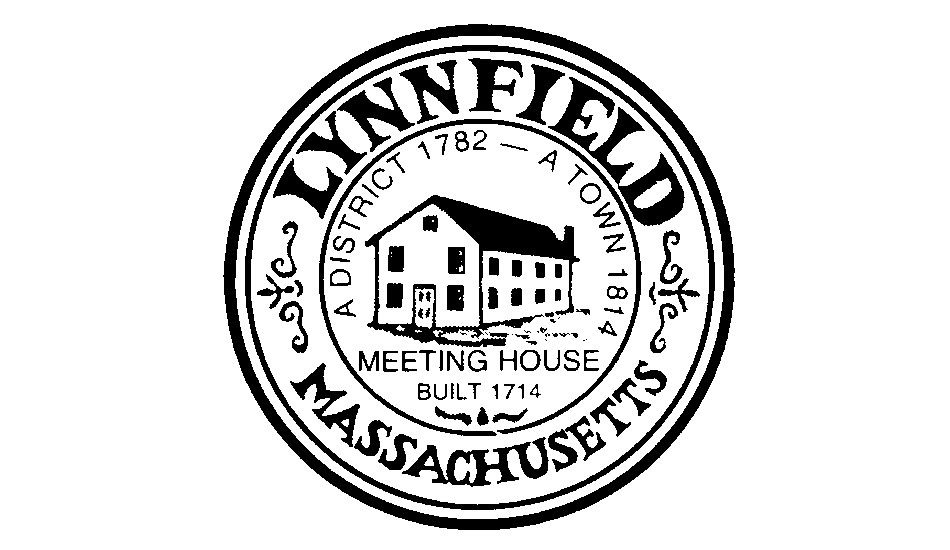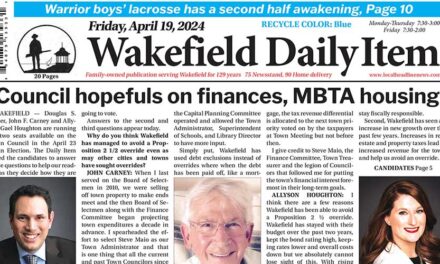By DAN TOMASELLO
LYNNFIELD — Building Inspector Joseph O’Callaghan is looking to update the town’s Accessory Apartments in Residential Districts Bylaw.
Section 8.3 of the Zoning Bylaw allows accessory apartments, more commonly referred to as in-law apartments, in most single-family homes. The bylaw’s purpose is to “meet the special housing needs of elderly parents of families presently living in the town of Lynnfield.”
“Accessory apartments may be created only within single-family dwellings, which are located on lots meeting the minimum lot area and width requirements of the applicable zone,” the current bylaw states.
O’Callaghan informed the Villager in an email that he is looking to update the Accessory Apartments Bylaw in order to “help homeowners get what they need as far as family help sooner.” The current bylaw was last updated in the 1980s.
“The bylaw states you can’t extend or enlarge the principal dwelling for an accessory apartment,” stated O’Callaghan. “When people are told this, they go ahead and construct an addition by-right and then apply to the Zoning Board of Appeals for the accessory apartment. My proposed change just allows the process to happen much quicker.”
In order to construct an in-law apartment, O’Callaghan recalled during a recent Planning Board meeting that the current bylaw requires homeowners to apply for a Special Permit from the ZBA. He said the revised bylaw will still require homeowners to receive a Special Permit from the ZBA before an in-law apartment is built.
Planning and Conservation Director Emilie Cademartori said there are homeowners who have constructed in-law apartments without receiving a Special Permit from the ZBA.
“There have been people who put on an addition or did renovations, and converted rooms into an apartment without asking first,” said Cademartori. “Essentially, what might have been a game room is now a bedroom with an extra person living there.”
O’Callaghan said the revised Accessory Apartments Bylaw will need to be approved by Town Meeting, but it will not be ready for Spring Town Meeting on Monday, April 24. While the first draft of the updated bylaw is still being developed, he said one of the changes he is looking to implement is allowing additional family members such as a homeowner’s children, niece or nephew to live in an accessory dwelling unit as opposed to just elderly parents.
Cademartori said O’Callaghan’s revised bylaw would allow homeowners to construct an addition onto a house for the purpose of building an in-law apartment.
“That is something people cannot do now,” said Cademartori.
In response to a question from Planning Board member Page Wilkins, Cademartori said the current bylaw requires homeowners to give the town a bond for an accessory dwelling unit.
“The idea behind the bond is to remove the kitchen once the parent dies,” said Cademartori. “If we hold the bond and the homeowner doesn’t rip out the kitchen, we are supposed to go in and do it. It’s crazy.”
O’Callaghan agreed.
“We won’t be able to win that case in court,” said O’Callaghan. “I can’t tell someone to take a stove out of their house.”
The current bylaw also requires O’Callaghan to inspect accessory dwelling units annually to make sure the need for an in-law apartment “still exists.”
O’Callaghan said the updated bylaw will still require him to make annual inspections of accessory dwelling units to make sure they are in compliance with local, state and federal regulations. He stated in an email that the revised bylaw “still remains very restrictive with the apartment’s size and bedroom count.”
“It must comply with the Board of Health’s septic and groundwater regulations,” O’Callaghan wrote.
O’Callaghan stated that the revised bylaw will prohibit families from constructing basement in-law apartments “whether legal or not” because those units “make rescue attempts sometimes difficult.”
“It helps with safety regulations, as the change allows me to do yearly inspections of the apartment to make sure it meets safety standards,” stated O’Callaghan.
Cademartori said during the Planning Board’s meeting that its important for town officials to make sure people can get out of in-law apartments safely if there is an emergency such as a fire. She also said accessory dwelling units have to comply with Title 5 septic system rules and regulations.
O’Callaghan acknowledged getting Town Meeting to approve an updated in-law apartments bylaw will be very difficult because the zoning change will require a two-thirds vote for approval.
“I know people are going to say we are going to have two-family homes everywhere,” said O’Callaghan. “It’s not true. The town is very strict. If a homeowner lives in a Groundwater Protection District, they are not getting an in-law apartment because the bedroom count is restricted.”
Cademartori concurred with O’Callaghan’s viewpoint.
“Any zoning change at Town Meeting can turn into a nightmare,” said Cademartori. “Joe has to boil it down to why he has proposed changing the bylaw.”
Wilkins said the only way for O’Callaghan to know an accessory dwelling unit has been illegally constructed is if he receives a complaint.
“That is exactly right,” said O’Callaghan. “We don’t have a lot of people doing it, but we have a few.”
Planning Board member Amy MacNulty said the Accessory Apartments in Residential Districts Bylaw should become “more transparent.”
“Let’s have some rules and regulations that say what people can and can’t do,” said MacNulty. “We should do something to make it more legitimate.”
O’Callaghan noted that more individuals across the state and U.S. are looking to construct in-law apartments for their parents in the wake of COVID-19 outbreaks that occurred in nursing homes.
“Would you put your mom or dad in a nursing home after what happened the last three years? I wouldn’t,” said O’Callaghan.
Planning Board Chair Brian Charville inquired if a nurse could move into an in-law apartment if they are taking care of the homeowner.
O’Callaghan said yes.
“That is a reasonable accommodation, which is in our bylaw now,” said O’Callaghan.
Cademartori said the earliest that the revised Accessory Apartments Bylaw will head to Town Meeting is this fall.
“Since it is a zoning change, the Planning Board will be required to have a public hearing about it,” said Cademartori.
While Cademartori said the revised Accessory Apartments Bylaw is still being developed, she acknowledged that the current bylaw “needs a little tender loving care.”





